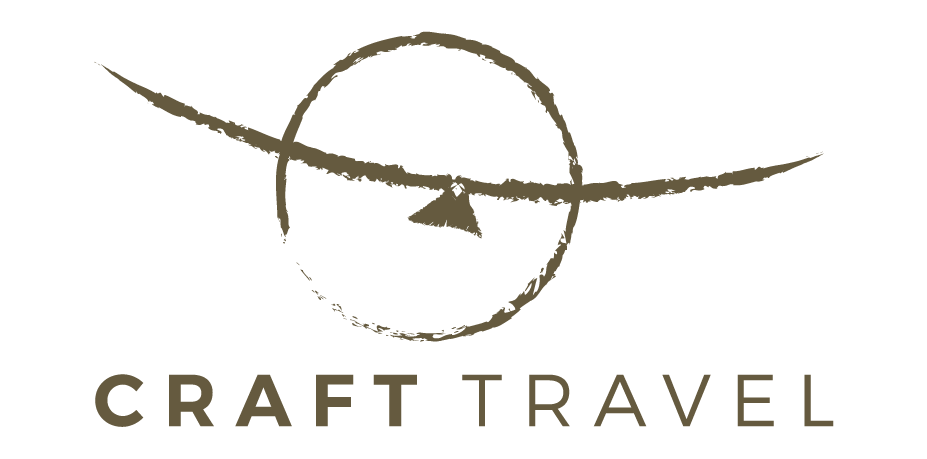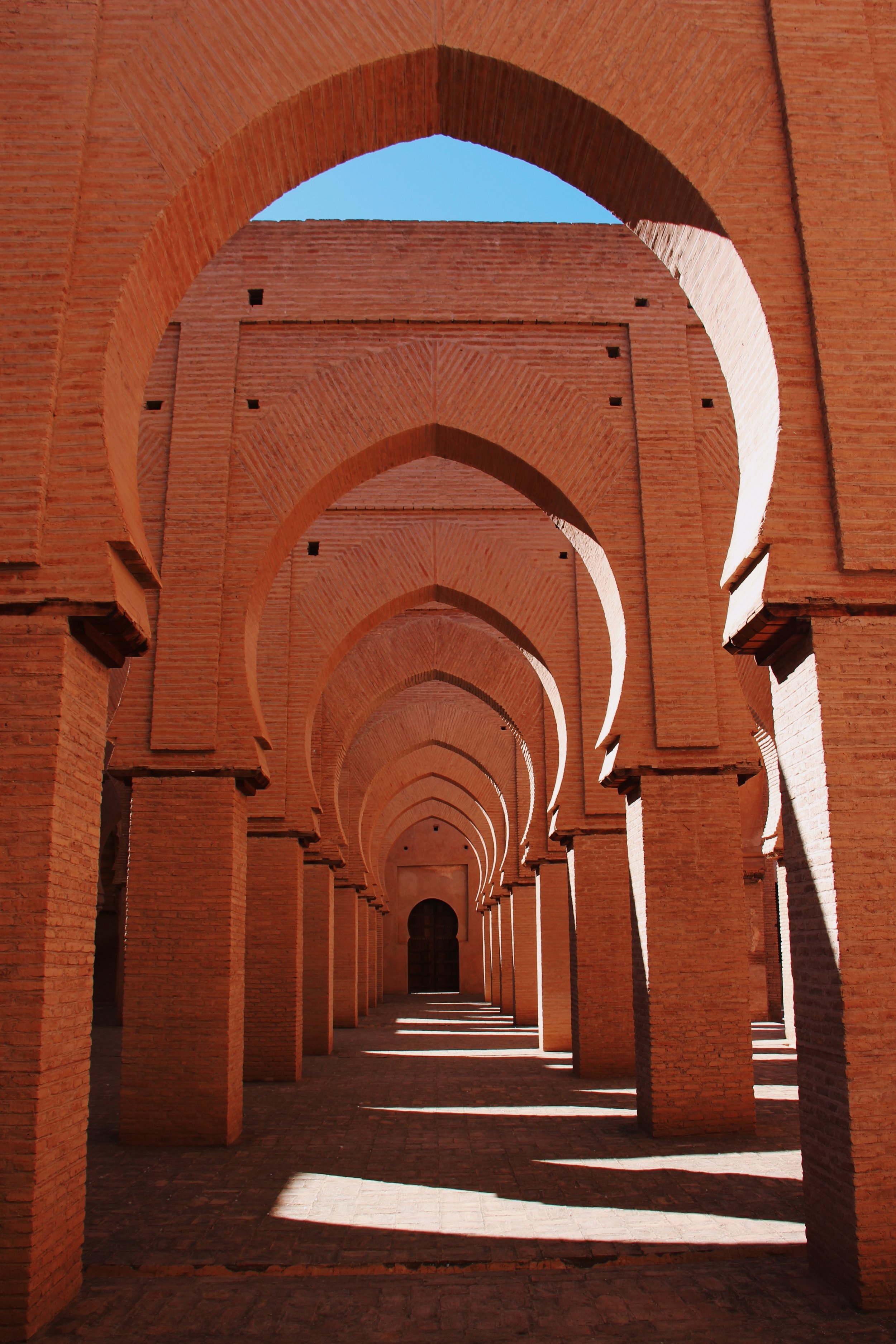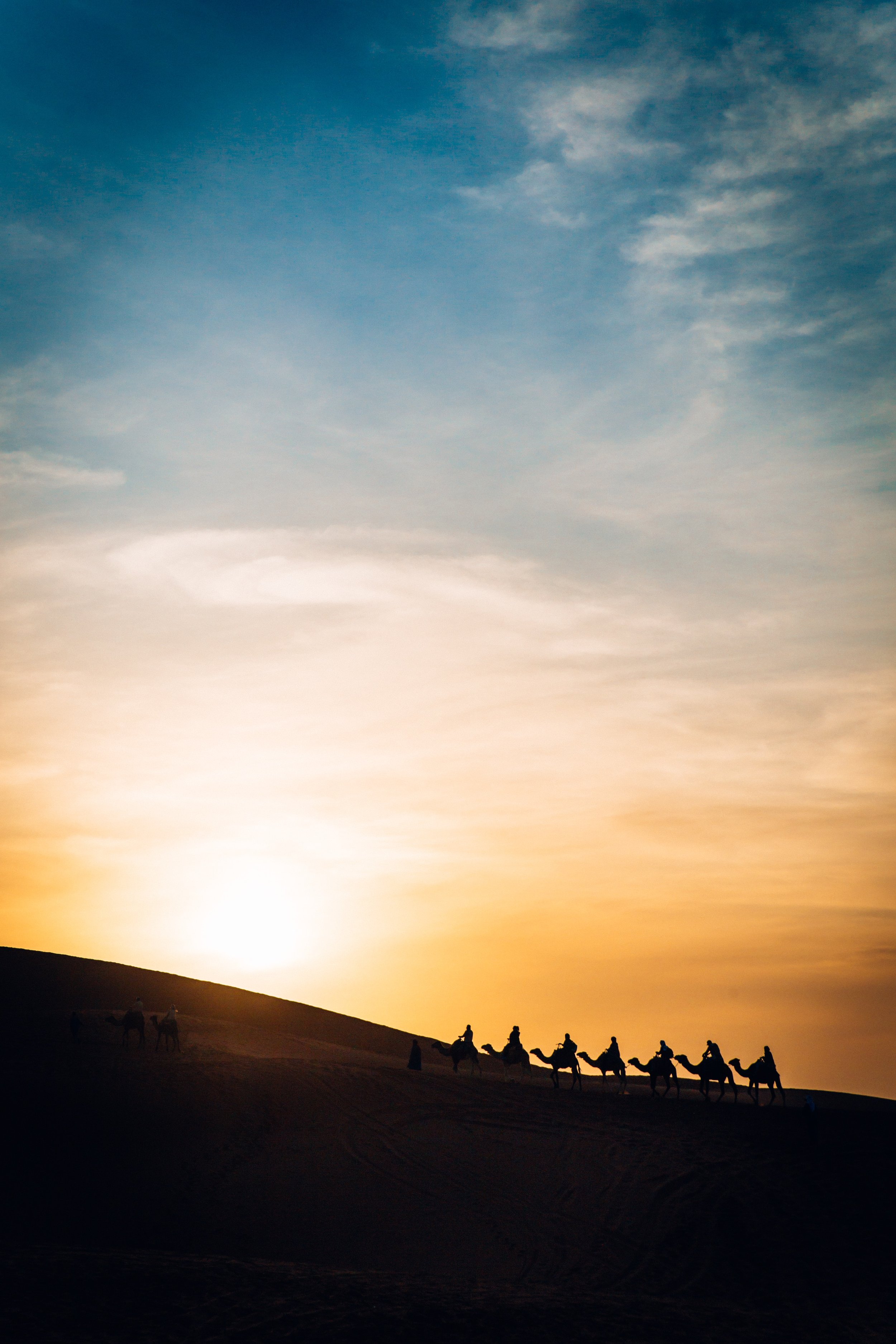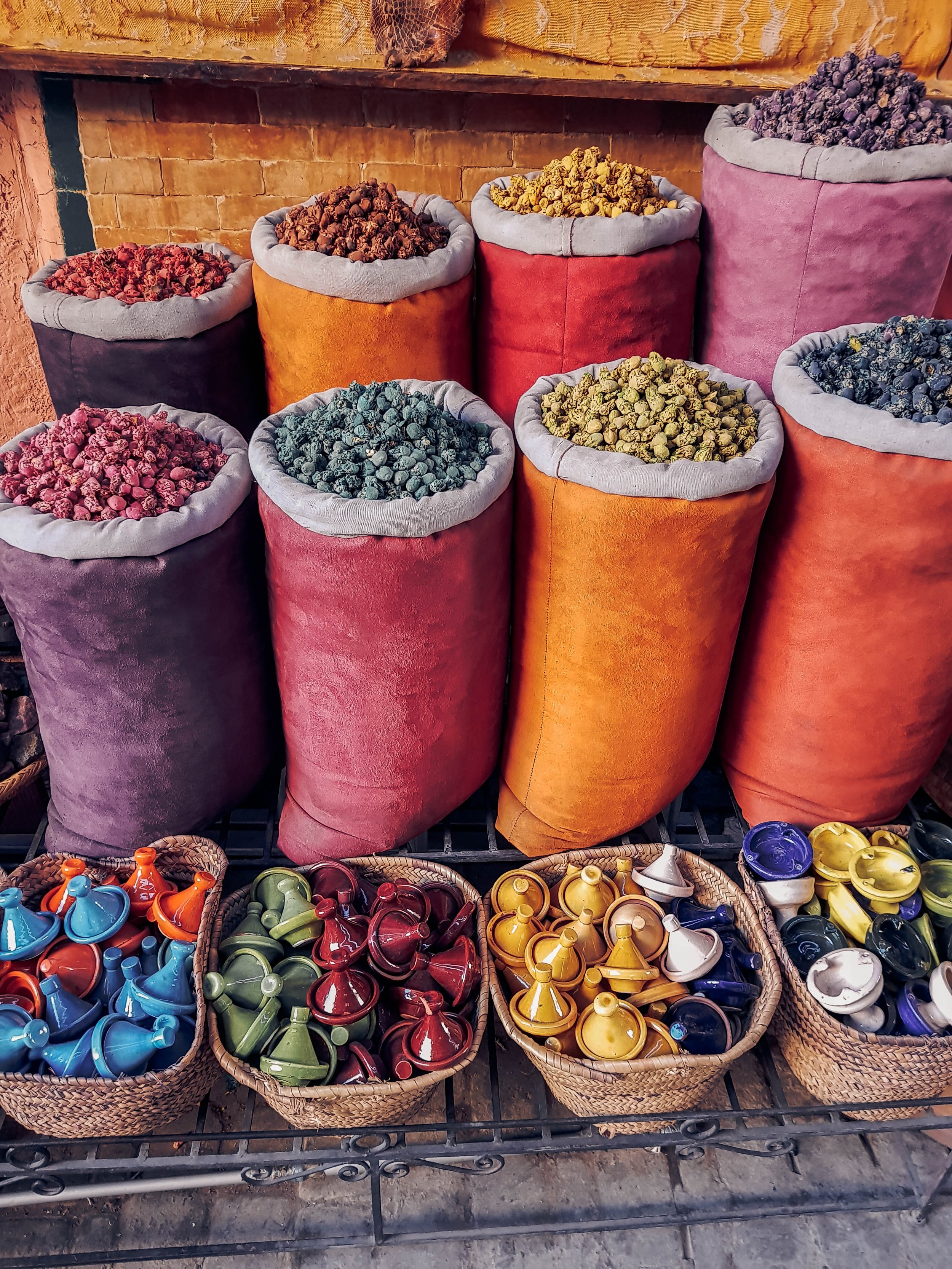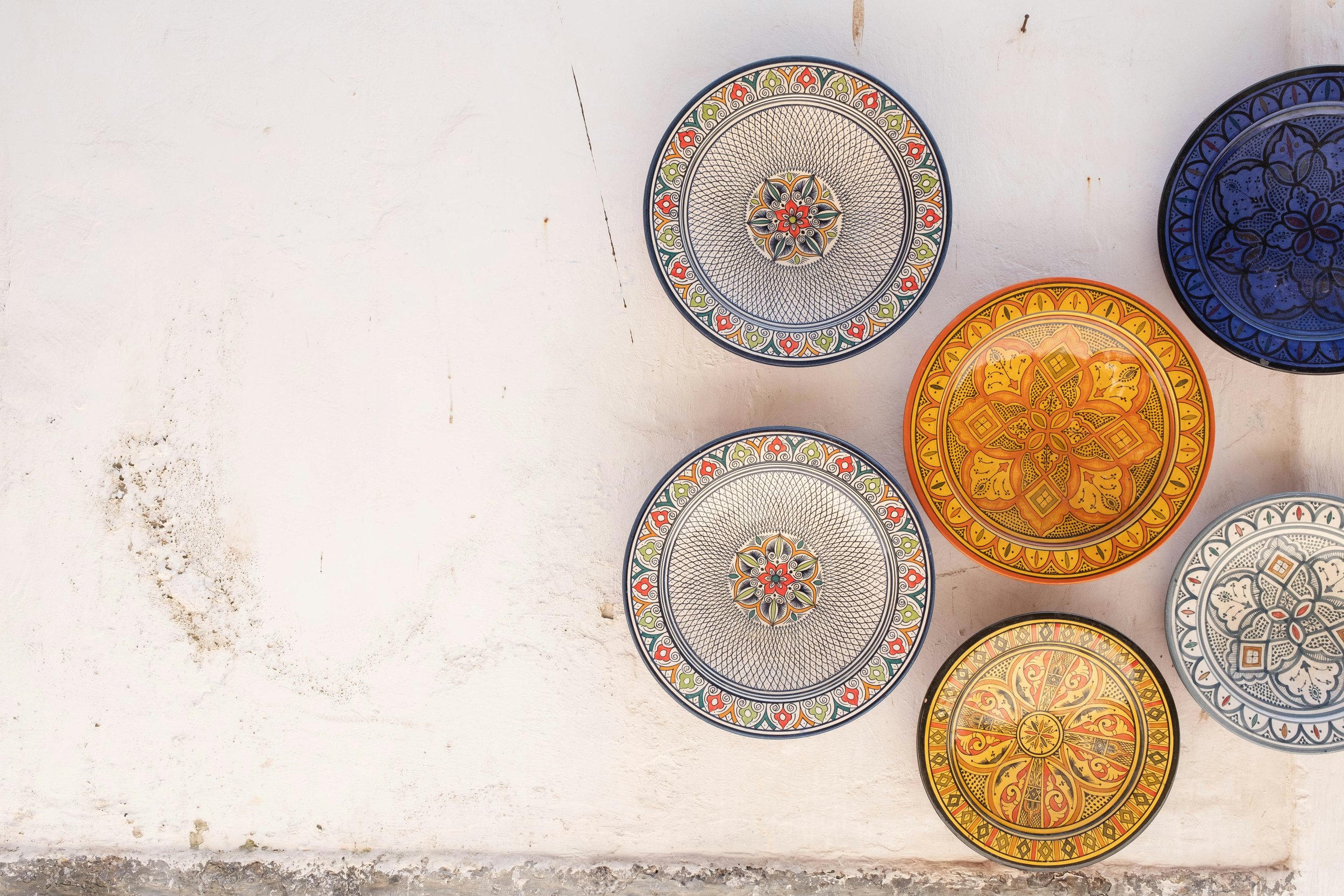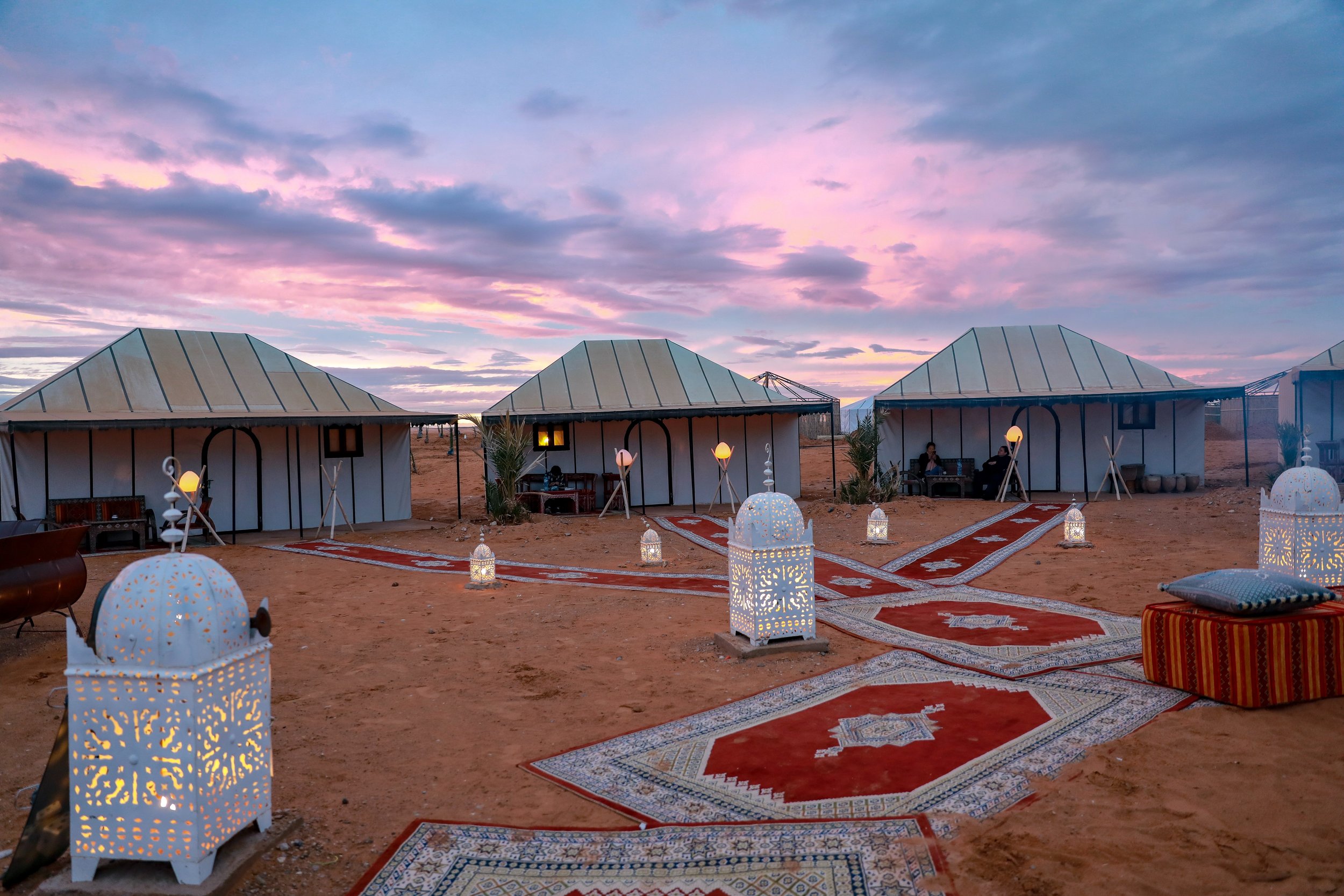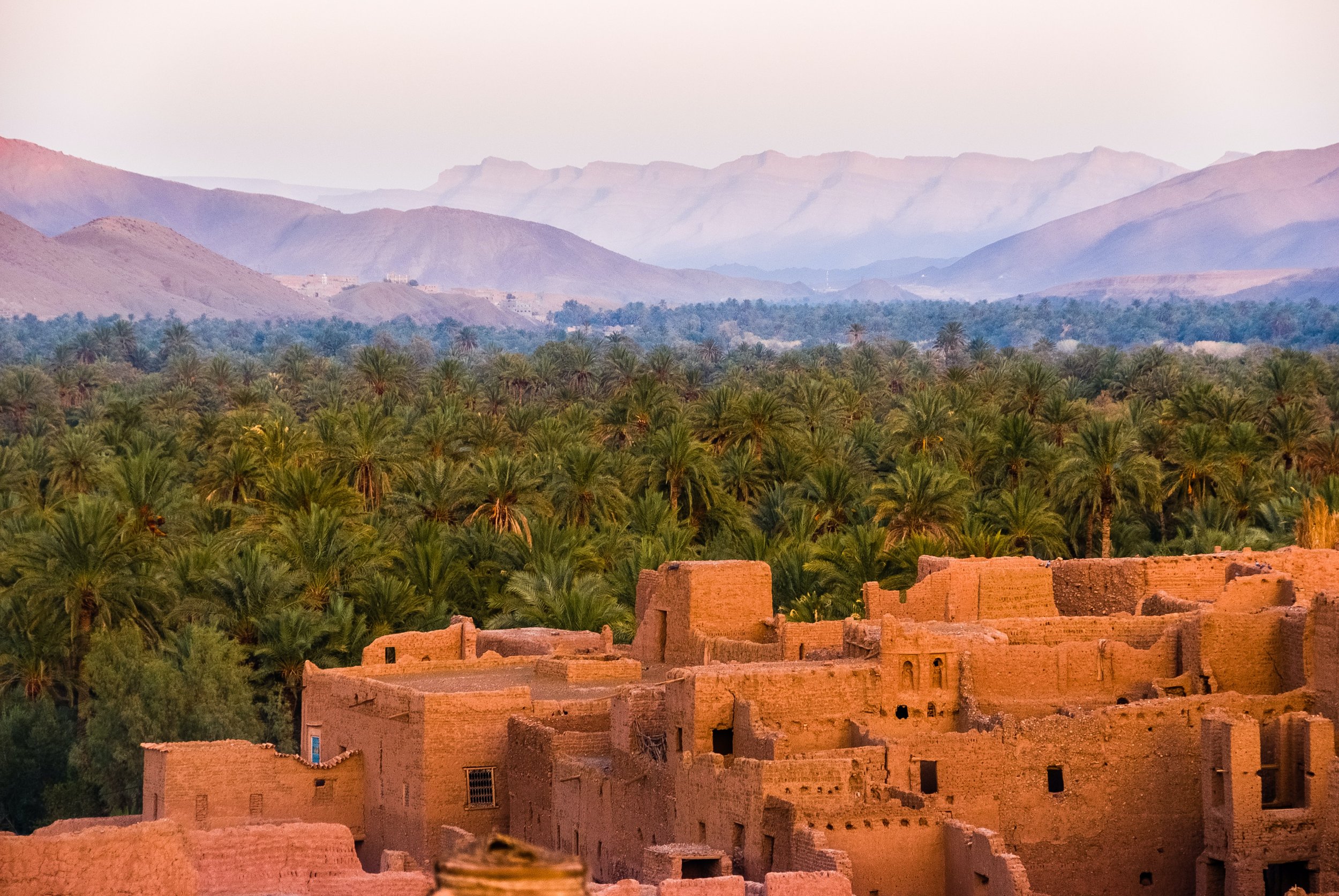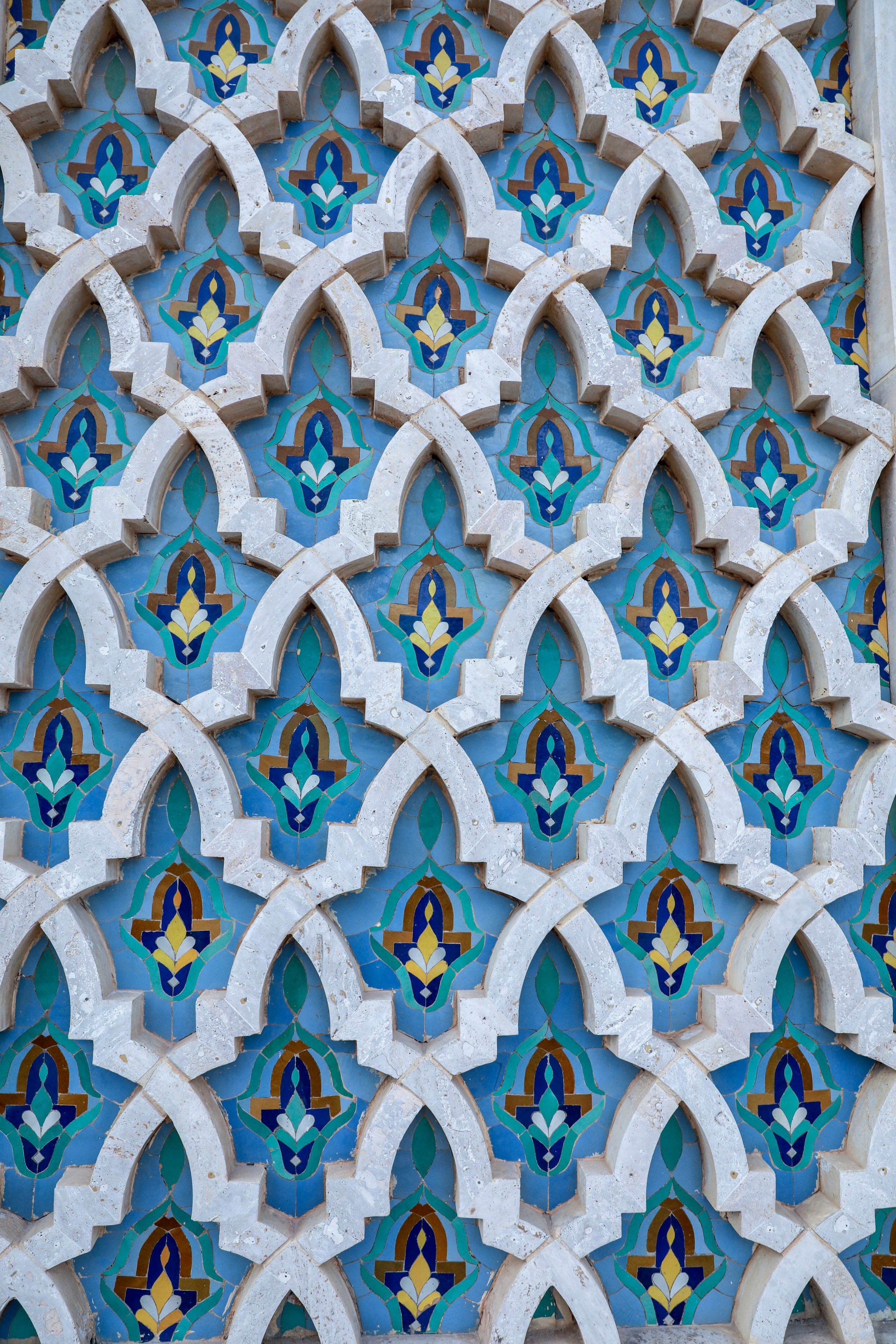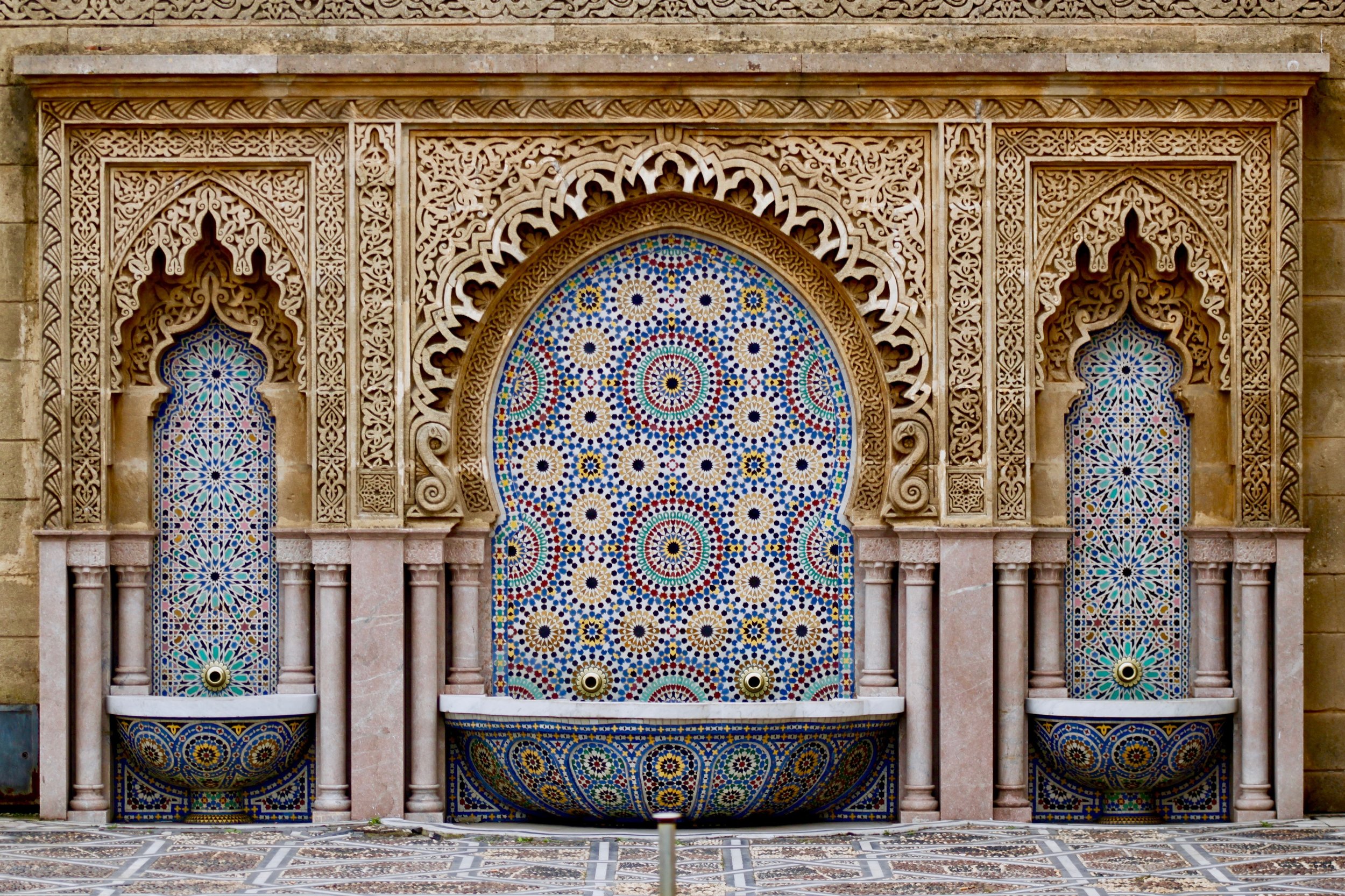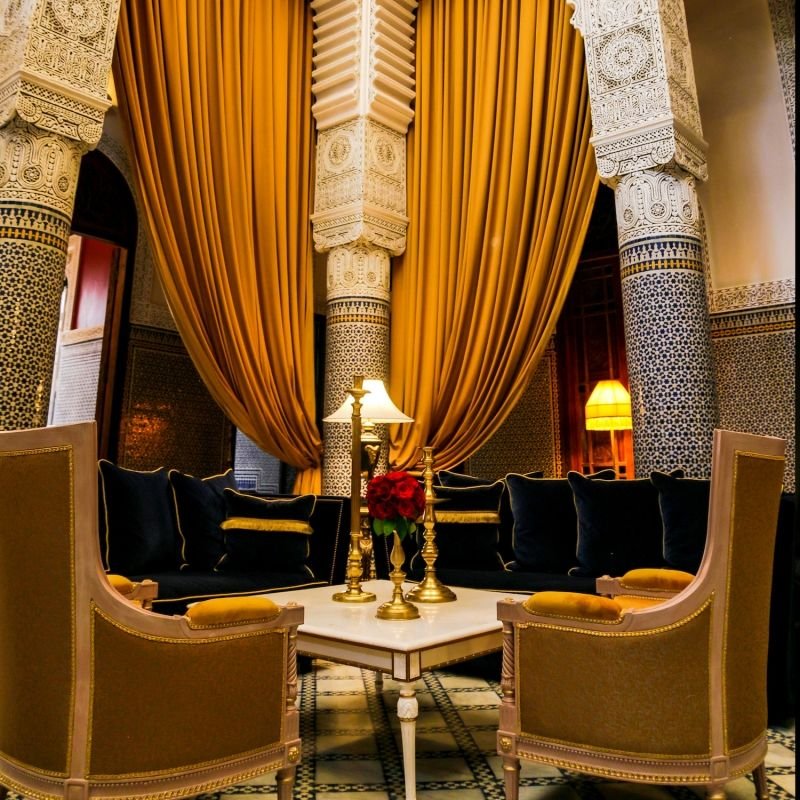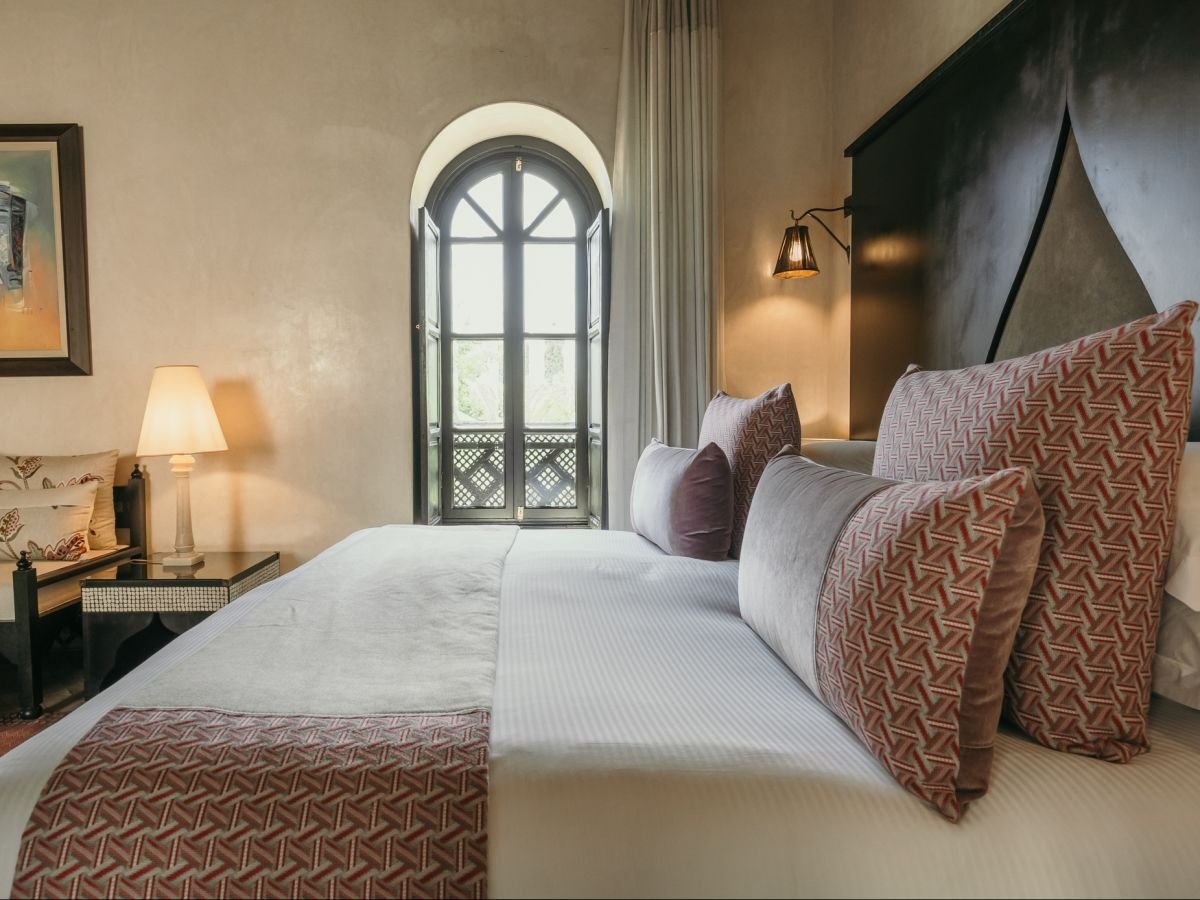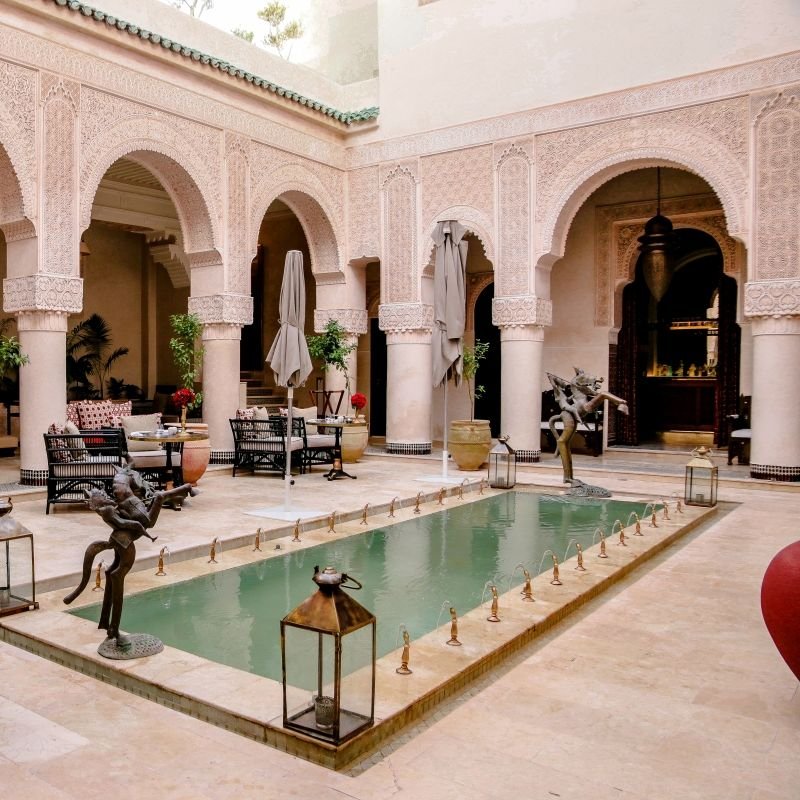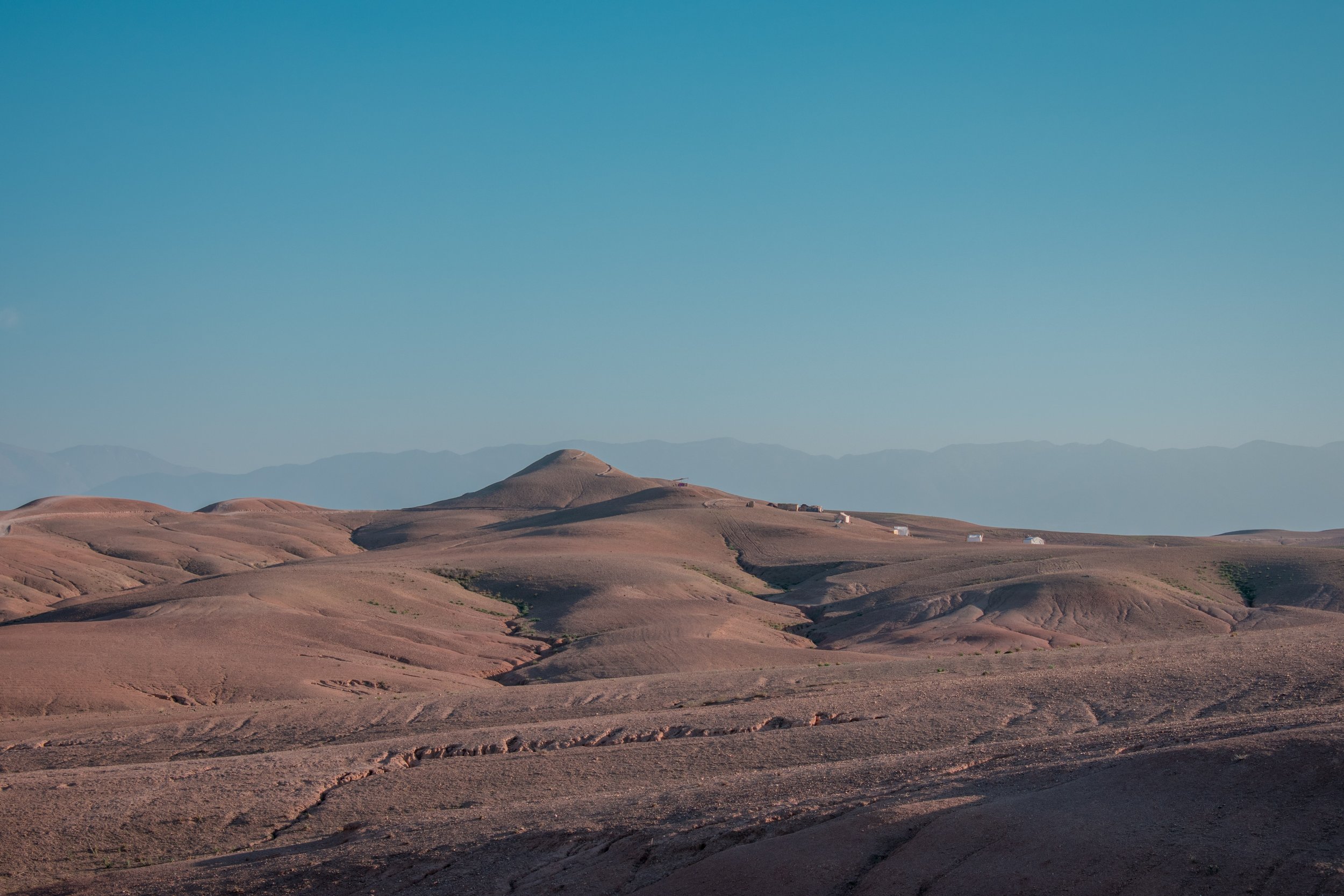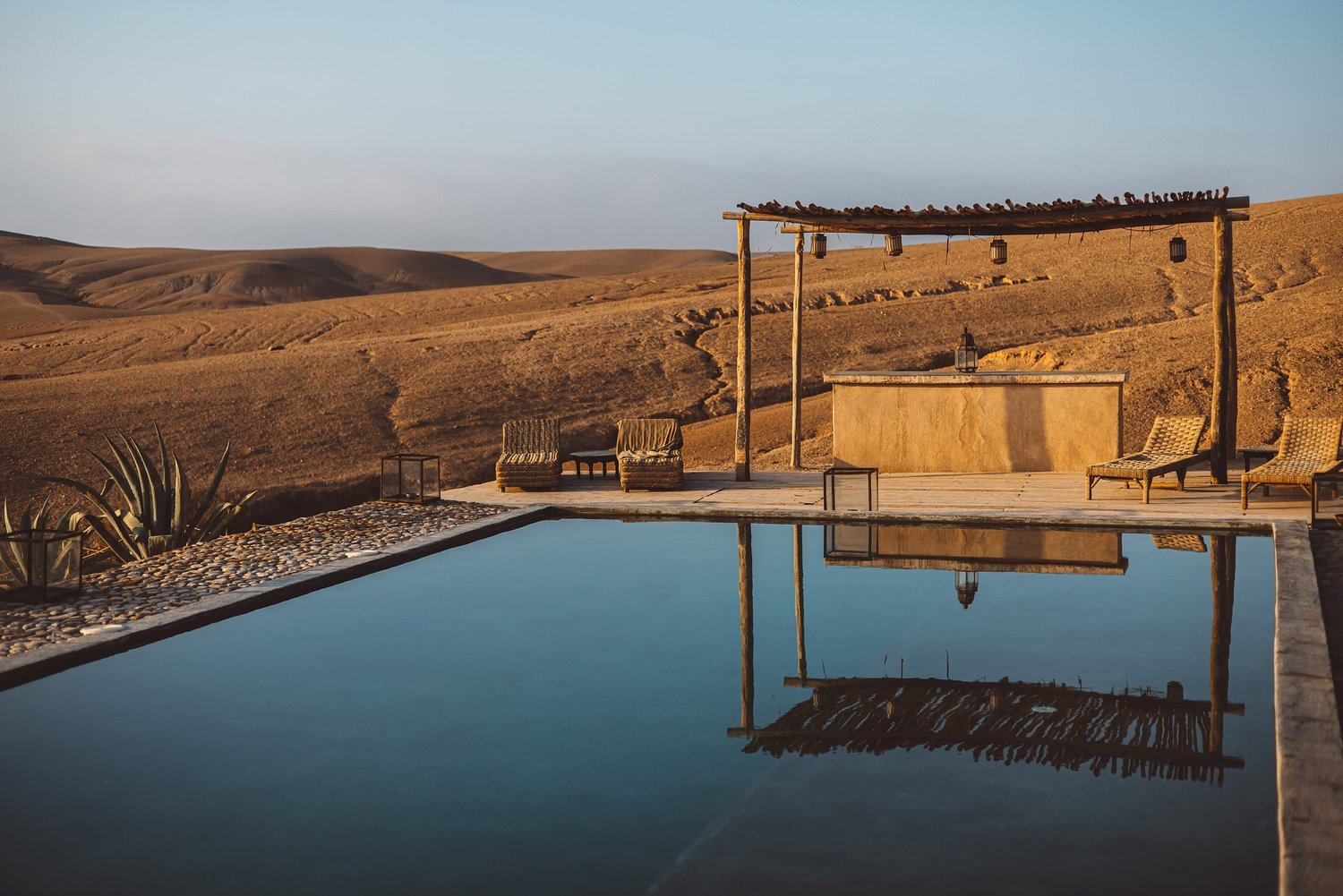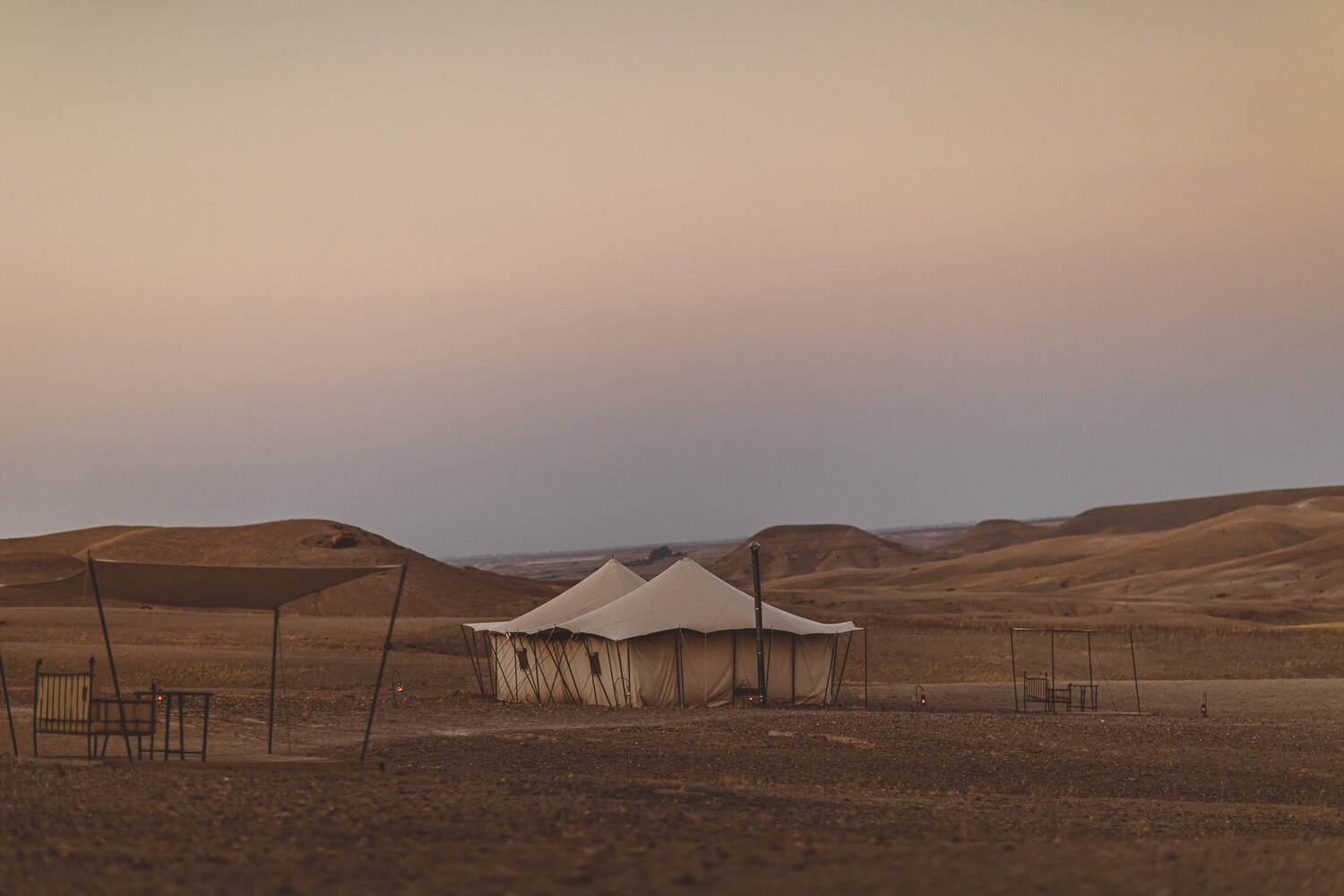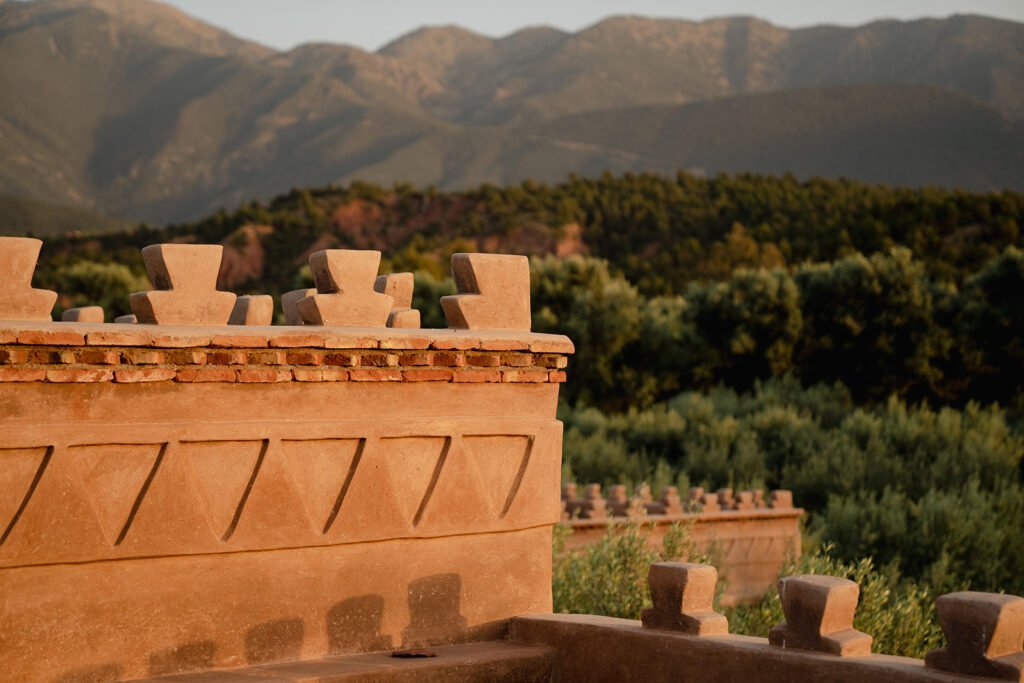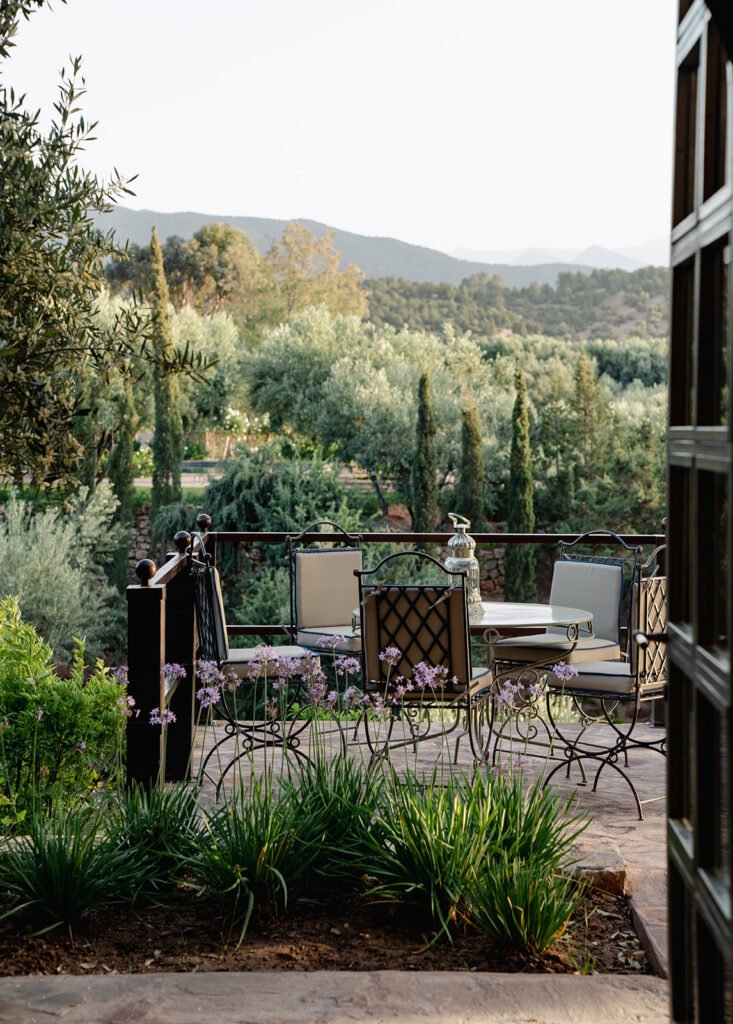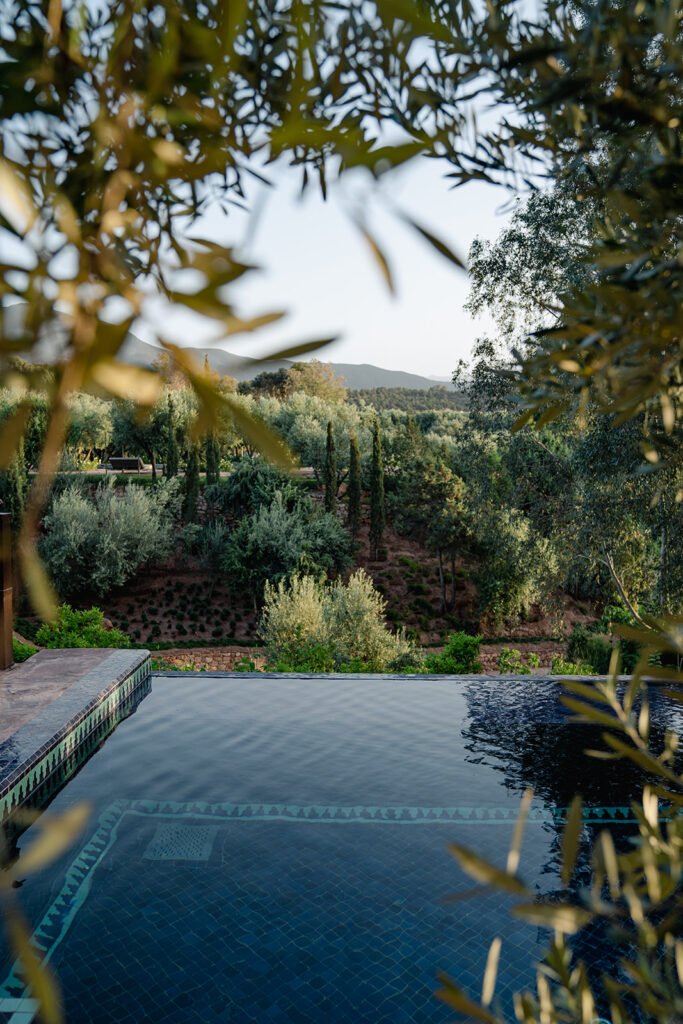Despite the Earthquake: the Enchanting Cities and Serene Mountains of Morocco
There's something magical about Morocco. As a travel designer with a deep-rooted passion for creating personalized experiences, I understand the allure this North African gem holds. From the towering Atlas Mountains to the expansive Sahara Desert, Morocco serves as a geographical testament to the diversity and beauty of our world.
Its colors, architecture and culture present a visual feast that is diverse as it is enchanting. The reds, blues, greens and golds that fill the air, such as in Marrakech, creates an eye-catching spectacle. There is beauty at every turn in this country. But perhaps what I loved most were the warm-hearted Moroccans. Whether it's a friendly shopkeeper in a bustling market or a goat herder in a remote village, the people you meet in Morocco leave a lasting impression. They take pride in their customs and are eager to share their stories and culture with visitors. This personal connection, this building of relationships, is what transforms a trip to Morocco into an unforgettable journey.
Back in September, I went on a scouting trip to uncover the finest properties and experiences available. Unfortunately, as we all know, a devastating earthquake struck the country, leaving the Atlas Mountains—a region of unparalleled natural beauty—scarred and in ruins. What you might not know is that the local economy heavily depends on tourism, and the absence of travelers will significantly hinder the country's recovery. So, if you've been contemplating a visit to Morocco, don't let recent events dissuade you. It's more important than ever for you to go.
We began our trip in Fes, a city where the past and present coexist beautifully. At its heart lies the Fes Medina, an extensive labyrinth of winding alleys and bustling souks that transport you back in time. It's a place where you can lose yourself in the cultural richness and the vibrancy of everyday life. After a hectic day of exploring, we settled in Riad Fes, a mesmerizing haven nestled in the history city. This majestic palace stands as an authentic embodiment of Hispanic-Moorish architecture, offering not just a place to stay, but an overall immersive cultural experience. The hotel showcases four beautifully styled patios, intricately sculpted doors, and stunning zelliges on the walls that echo the rich cultural heritage of the region. As the only Relais & Châteaux property in town, Riad Fès takes pride in its exceptional services that embody the warmth and hospitality of Moroccan culture.
After a few days, it was time to head south to Marrakech, with a quick stop in Rabat. Rabat is dotted with remarkable historical sites, winding alleys, whitewashed houses and spectacular views over the Bou Regreg River. We were driven for another four hours and arrived in Marrakech. The city is famous for its vibrant souks or markets, teeming with colorful textiles, spices, jewelry, and handcrafted goods. Walking through these bustling markets is an experience like no other - the sights, sounds, and smells are a sensory overload that is quintessentially Marrakech. What is most thriving in Marrakech is the art scene. Home to various art institutions, the city clearly supports artists and creatives. Our favorite museum was the Yves Saint Laurent Museum, dedicated to the life and work of French fashion icon Yves Saint Laurent.
Marrakech's accommodations offer a whole different experience, raising the bar for 5-star accommodations. We stayed at The Royal Mansour and felt like royalty the moment we made our way into the hotel. The lobby is absolutely breathtaking, showcasing the exquisite Moroccan architecture and design. We had our own private riad, offering unparalleled refinement and intimacy. After days of exploring the vibrant city, I can't think of a better way to end your day than in your own private riad.
We really wanted to experience the desert in Morocco, but we were pressed for time and felt rushed to visit the Sahara desert. As an alternative, we visited The Agafay Desert, located just an hour south of Marrakech. Unlike the Sahara, Agafay doesn't have golden sand dunes. Instead, it features a barren, rocky landscape that almost looks lunar. You can enjoy activities such as horseback riding, quad biking and luxury camping. In hindsight, we would have preferred to experience the iconic desert experience in the Sahara, even if just for one night. I think the vast seas of sand dunes, some reaching up to 150 meters in height, would have left an indelible impression on us.
I saved the best for last heading to the Atlas Mountains, as I was particularly interested in learning about the Berber population. The Atlas Mountains are home to several Berber Villages, which are nestled in the rugged beauty of the landscape. What is so fascinating about this population is that they have preserved numerous traditions. For instance, at a Berber Muslim funeral, only men are typically in attendance, reflecting the gender roles within their society. Despite their differences with the western world, these beautiful people showcase their simplicity, resilience and close knit family ties that I so admire.
We had the privilege of staying at Olinto in the Atlas Mountains, my favorite hotel stay throughout the entire trip. Olinto features just nine beautiful luxury pavilions, each set in their own private gardens. This exquisite retreat is the brainchild of the Prince, Fabrizio Raspuli di Poggio Suasa, a Franco Italian furniture collector with a deep understanding of Moroccan culture. The staff here are exceptional, without being overzealous. This was the perfect place to relax and soak in the different garden aromas, and detox after major sensory overload in Marrakech.
During our stay at Olinto, we experienced first hand the 6.8 magnitude earthquake that struck the Atlas Mountains. We were just about 12 miles away from the epicenter and it was a terrifying experience. We were getting ready for bed when we were shaken by this all encompassing thundering sound. I was convinced at the time it was a plane that was coming straight into our pavilion. Then, I realized it was an earthquake. We knew we had to get out, but we panicked and froze.
When the sound and tremor stopped, everyone came out of their pavilions. Everyone gathered their blankets as it was cold and attempted to make phone calls to their loved ones, but the mobile signal died for days after half an hour. We heard remnants of building pieces falling and cries of babies from the nearby homes. It was a surreal experience and with no signal, we weren't aware of the aftermath. The hotel employees were desperate for news of their family members.
At dawn we learned that many of the hotel employees lost their homes and loved ones. The roads were destroyed - giant boulders, landslides and vehicles trapped behind rocks. The employees had nowhere to sleep and locals were sleeping on the side of the streets. After 24 hours, the community pulled together. The army came through and cleared the roads. Tented camps were set up along the roads, along with food and water. It was truly incredible to see how everyone rushed to help everyone else, with nobility and courage.
Upon my return to the states, I was disheartened by the portrayal of the earthquake's aftermath in Morocco, as depicted by various media outlets. The event had indeed wrought havoc, but its impact was predominantly concentrated in specific regions of the High Atlas Mountains, rather than in Marrakech as overemphasized by the media. This media depiction led to a wave of trip cancellations to Morocco, a country whose lifeblood is tourism. As someone who cherishes Morocco and its rich culture, I believe it's critical to share a balanced perspective. Yes, there has been devastation, but it's localized. And while certain areas are grappling with reconstruction, others remain welcoming to visitors, offering their renowned hospitality. Many locals from the Atlas Mountains continue to live in tents. Let us remember that during these challenging times, our support can make a difference, by continuing to travel to Morocco, or contribute to the nation's recovery through other means.
After visiting the Atlas Mountains, I was scheduled to attend PURE luxury travel show in Marrakech, one of the world's best travel shows in the industry bringing together top tier experiential travel professionals. Out of respect for the Moroccan community, PURE was cancelled, but many team members remained in Marrakech to support local relief efforts. Morocco still needs everyone's help, so for those that would still like to donate, please follow this link to donate to Education for All and to Travel Link Foundation.
Please reach out to us if you are ready to explore the many wonders of Morocco. We had clients recently visit after the aftermath, and they are very happy to have not cancelled their trip. We will guide you through personalized experiences that highlight the very best this country has to offer, helping you forge connections that last a lifetime.
